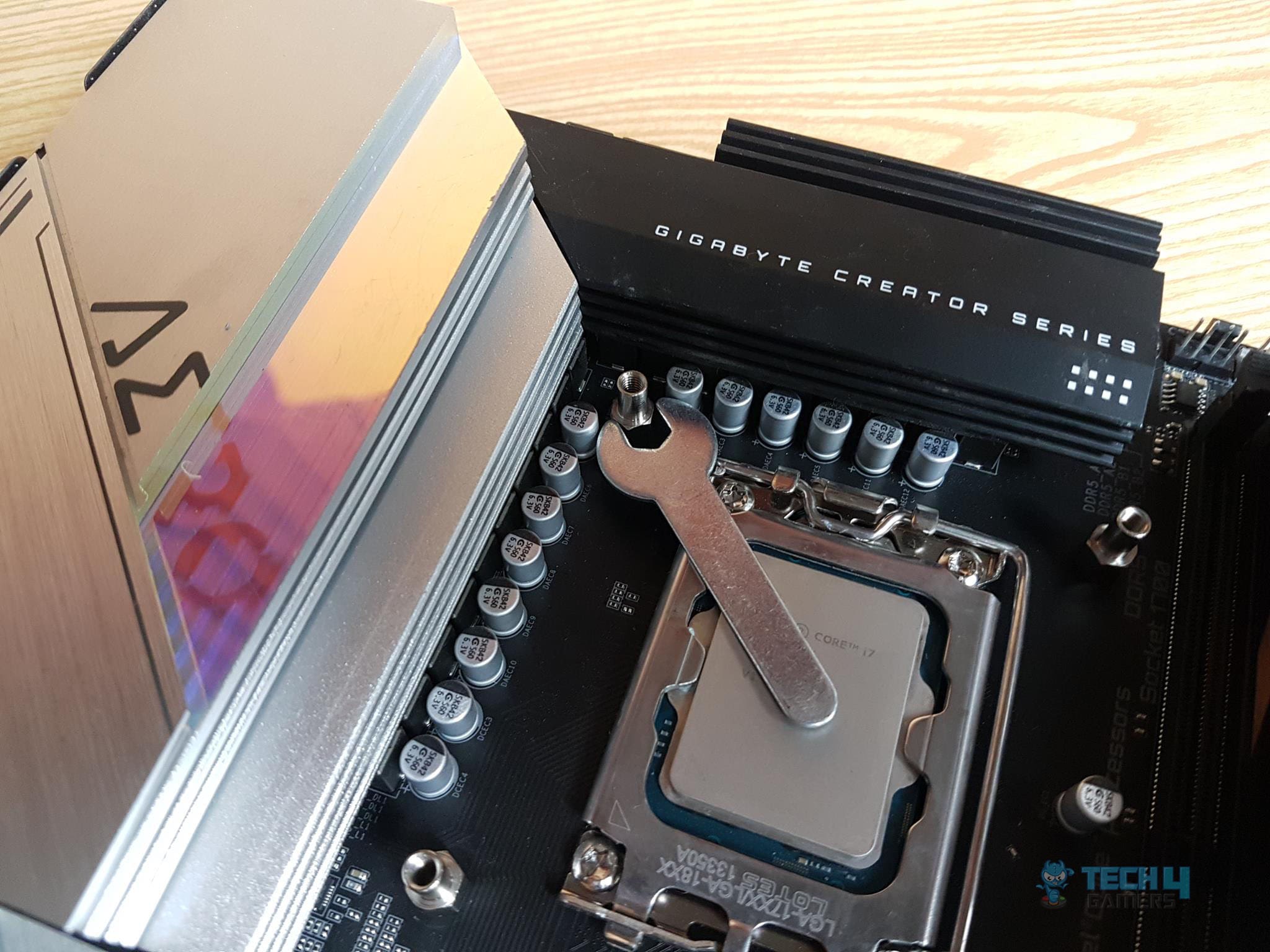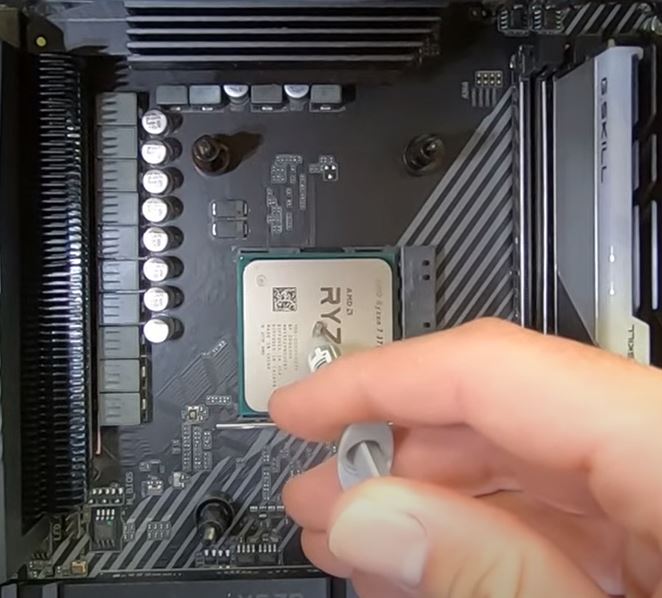No one is a fan of a slow PC. One that starts becoming sluggish when you start putting on a little more workload than usual. To prevent this, many people try overclocking their CPU just so that the processor can quickly catch up on all the tasks instead of getting a better processor. This is fine, but there is always a consequence when one opts for an easy way out like this. This leads us to the question, does overclocking reduce CPU lifespan?
You will come across many people who are extremely against it. On the other hand, there might be some people who may encourage you to do so. Therefore, we are providing you with a guide to eradicate your confusion.
Key Takeaways
- Overclocking refers to increasing the voltage running through it to increase the speed of a component.
- Overclocking can boost the performance of your CPU.
- Overclocking can reduce the lifespan of your CPU if certain things are not taken into consideration.
The Impact Of Overclocking CPU
When you overclock your CPU, you force it to work at a higher speed by running a higher voltage through it.[1] This is a much higher speed than the one it runs at by default.[2]
Unfortunately, passing a higher voltage through the CPU comes along with a lot of heat.[2] This ultimately heats your CPU way quicker than it normally gets. Heat is already an enemy to the components of your PC.

- The Stress Of Thermal Cycling: We are already aware that overclocking results in a higher temperature rise than usual. A drop from high temperature to room temperature (After the PC is shut down) and vice versa can put your CPU under much stress[3]. The more frequently this is done, the more adverse effects on the lifespan of the CPU.
- The Cooler Installed Inside Your PC: It would be best if you had a way out of the heat produced by the CPU. If the heat stays in for a prolonged time, the chances of damage to the CPU become higher. The better the airflow and heat management, the higher chances of a longer lifespan[4]. You can check out our guide on AIO vs Air Cooler for a better understanding.
- Temperature Absorbed By The Heat Sink: The heat sink should be quick and efficient when your CPU releases heat after overclocking. A poor, inefficient, and slow job will affect the lifespan of your CPU.
- Extremity Of Overclocking: The lifespan of your CPU also depends on how much you overclock it. If the voltage increment is not too high, your CPU’s lifespan won’t be affected much. This is tolerable for your CPU. Light overclocking should only have a temperature range from 10C to 20C above the usual CPU temperature. Although, if the overclocking is done by increasing voltage passage to an extreme level, the CPU lifespan will be significantly affected.
Benefits Of Overclocking CPU
While overclocking can reduce CPU lifespan, the benefits may provoke a lot of users to opt for it. For instance, performance improvement is extremely evident. Your processor has the room to carry out many tasks in an instant.
The apps that used to crawl before might become quick to respond to commands. Your CPU may be able to carry more workload than previously. For example, video editors won’t wait for ages to complete a simple task[5].
The good news for gamers may be that they can pick a higher fps rate[6]. Their gaming experience can boost after CPU overclocking if they have a good GPU and high-capacity RAM. You can overclock RAM and GPU both.
Moreover, in most cases overclocking your CPU may not be heavy for the pocket. For people who want to avoid spending on a new CPU that gives better performance, it’s a better option for sure.
Drawbacks Of Overclocking CPU
There are some alarming drawbacks to overclocking your CPU. Just like how it can damage the GPU, it can also possibly damage the CPU.
- If your CPU is under warranty, it will become void[7].
- Overclocking increases the power requirement of the CPU[8].
- As your CPU heats up, the motherboard socket becomes prone to damage. This is because the place where your CPU sits is the motherboard socket.
- The increased voltage passage through the CPU can put the system at risk of short circuits[9].
- If the cooling system of your PC is dependent on fans, you may have increased noise.
- Overclocking requires a good cooling system. If your cooling system is inefficient, you may end up with your whole system fried.[4]
- Last but not least, the heat will cause a reduction in your CPU’s lifespan.
Is Overclocking CPU A Good Idea?
The first thing you should know about overclocking your PC is that it is limited to desktop builds. One should never try to overclock the CPU inside Laptops. This is because the cooling system in laptops does not support overclocking[10]. Most Laptops do not even have the option to overclock the CPU.
The possibility of overclocking is not enough to put it into action. You need to check whether your CPU is even capable of handling overclocking without high risks coming along. The facts we have provided below should be noted when deciding to overclock.
- Your hardware should be powerful enough to handle overclocking. Prebuilt store-bought PCs do hardly have hardware strong enough to afford to overclock. If you have a PC that is a custom build, then you may proceed to do so.
- Most of the time, fans do not do a good job when you overclock your CPU[11]. You may opt for a liquid cooling system to manage the heating issue.
- You should have hardware components that can cope when you overclock your CPU. For instance, AMD components are quite reliable when overclocking[12]. It would help if you still did some research beforehand to stay on the safe side.
- To overclock your CPU, you must have the required power supply.
- The quality of the thermal paste should be excellent.
Thermal paste.
Once you are done with a check of these facts, you may download third-party software to test your CPU. The test will gradually put stress on your PC to see how the CPU responds to it. If your CPU can pass the test and stays stable despite all stress, you may overclock it.
Conclusion
This was everything you needed to know about whether overclocking reduces CPU lifespan or not. Despite the overclocking, your CPU will last a while, enough until you decide to upgrade it if you are a gamer. If you want their CPU to last for more than six years, then overclocking may not be the thing for you.
You may have learned that even though overclocking plays a part in reducing the lifespan of your CPU, it still gets the best out of it. The enhanced performance of the PC is enough to make one forget about the damage sometimes.
Furthermore, we would like to shed some light on factors unrelated to the technical side that may affect your CPU’s lifespan.
- The place where you have put your computer case. It should be open enough for the heat inside the computer case to not come back once let out.
- The room temperature of where you have placed your computer case. If you have scorching summers, it is necessary to have an AC to keep things cool.
- For how long does the PC stay on? If you are running your PC for hours and hours with no break, it is bound to heat up.
- Whether the PC’s dust cleaned occasionally or not? If the dust is not cleaned off from time to time, it will cover up the CPU. This causes the heat to trap inside and significantly increases the CPU’s temperature.
Related Helpful Resources By Tech4Gamers:
- Best GPU Overclocking Software
- CPU Cooler Buying Guide
- How To Vertically Mount Your GPU
- How To Turn Off Overclocking
References:
- Lenovo. (n.d). What is Overclocking? Retrieved from https://www.lenovo.com/in/en/faqs/pc-life-faqs/what-is-overclocking/
- Intel Corporation. (n.d). 5 Reasons to Overclock Your Next PC. Retrieved from https://www.intel.com/content/www/us/en/gaming/resources/5-reasons-to-overclock-your-next-pc.html
- Lau, J. H., Pao, S. C., & Lin, C. K. (2009). Thermal cycling reliability of lead-free chip-resistor solder joints. In Microelectronics Reliability. Retrieved from: www.researchgate.net/publication/242340190_Thermal_cycling_reliability_of_lead-free_chip_resistor_solder_joints
- Lenovo. (n.d). Megahertz. Retrieved from https://www.lenovo.com/us/en/glossary/what-is-megahertz/?orgRef=https%253A%252F%252Fwww.google.com%252F
- Lenovo. (n.d). Video Editing For Desktop. Retrieved from https://www.lenovo.com/us/en/d/desktop-for-video-editing/
- Avast Software. (n.d). How to Overclock Your GPU to Boost Your Games’ FPS. Avast Academy. Retrieved from https://www.avast.com/c-how-to-overclock-gpu
- Intel Corporation. (n.d). How to Obtain Information About Overclocking Intel® Processors. Retrieved from https://www.intel.com/content/www/us/en/support/articles/000038213/processors/intel-core-processors.html
- University of Massachusetts Amherst, Techbytes. (2017, February 08). CPU Overclocking: Benefits, Requirements and Risks. Retrieved from https://websites.umass.edu/Techbytes/2017/02/08/cpu-overclocking-benefits-requirements-and-risks/
- Massachusetts Institute of Technology. (2017, November 11). What is a short circuit? Ask an Engineer. Retrieved from https://engineering.mit.edu/engage/ask-an-engineer/what-is-a-short-circuit/
- Malwarebytes. (n.d). What is overclocking? Retrieved from https://www.malwarebytes.com/cybersecurity/computer/what-is-overclocking
- Ramakrishnan, B., Alissa, H., Manousakis, I., Lankston, R., Bianchini, R., Kim, W., Baca, R., Misra, P. A., Goiri, I., Jalili, M., Raniwala, A., Warrier, B., Monroe, M., Belady, C., Shaw, M., & Fontoura, M. (2021). CPU overclocking: A performance assessment of air, cold plates, and two-phase immersion cooling. IEEE Transactions on Components, Packaging and Manufacturing Technology. Retrieved from: https://ieeexplore.ieee.org/stamp/stamp.jsp?arnumber=9517300
- AMD. (n.d.). Ryzen Master. Retrieved from https://www.amd.com/en/products/software/ryzen-master.html
FAQs
You can stretch the lifespan to 3 to 4 years if you do it with proper monitoring and put in a good quality cooler for heat management.
The answer to this may vary from processor to processor. If you are someone who got lucky with the silicon lottery and has a good cooling system, then the reduction in your CPU lifespan may be lesser than others.
You can overclock your CPU through bios. Although, if you are interested in extreme tweaking, you may need software that supports your processor.
Thank you! Please share your positive feedback. 🔋
How could we improve this post? Please Help us. 😔
[Wiki Editor]
Ali Rashid Khan is an avid gamer, hardware enthusiast, photographer, and devoted litterateur with a period of experience spanning more than 14 years. Sporting a specialization with regards to the latest tech in flagship phones, gaming laptops, and top-of-the-line PCs, Ali is known for consistently presenting the most detailed objective perspective on all types of gaming products, ranging from the Best Motherboards, CPU Coolers, RAM kits, GPUs, and PSUs amongst numerous other peripherals. When he’s not busy writing, you’ll find Ali meddling with mechanical keyboards, indulging in vehicular racing, or professionally competing worldwide with fellow mind-sport athletes in Scrabble at an international level. Currently speaking, Ali has completed his A-Level GCEs with plans to go into either Allopathic Medicine or Business Studies, or who knows, perhaps a full-time dedicated technological journalist.
Get In Touch: alirashid@tech4gamers.com


 Threads
Threads

![Power Supply 80+ Certification [Explained] be quiet! Dark Power Pro 80 Plus Titanium Branding](https://tech4gamers.com/wp-content/uploads/2024/05/be-quiet-Dark-Power-Pro-80-Plus-Titanium-Branding-218x150.jpg)
![What Is VSync? [All Types & Benefits] What Is VSync?](https://tech4gamers.com/wp-content/uploads/2023/05/HOW-TO-10-218x150.jpg)

![Is A Laptop Considered A PC? [Explained] Is Laptop a PC](https://tech4gamers.com/wp-content/uploads/2022/09/Is-Laptop-a-PC-218x150.jpg)